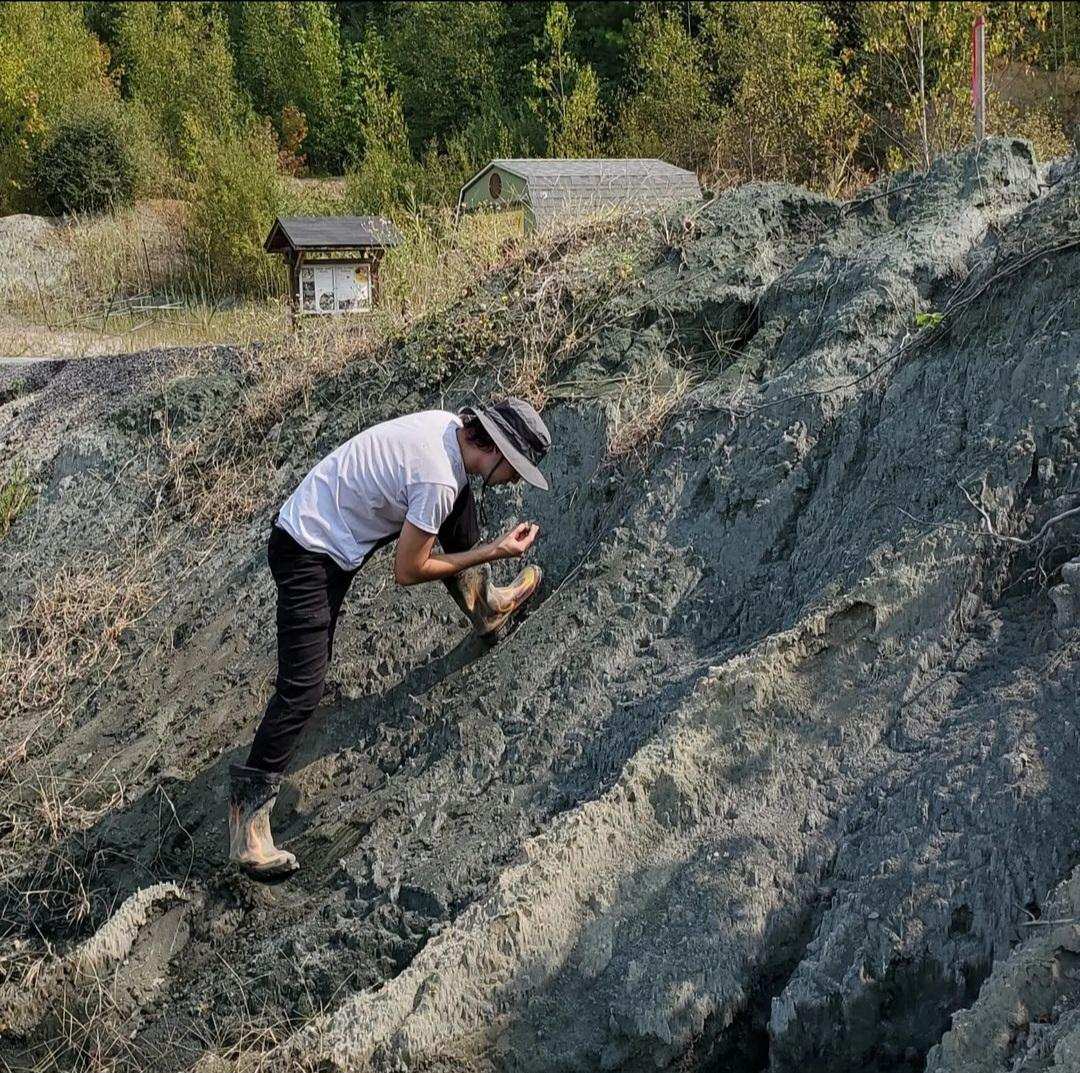Have you ever wished you could make learning more fun and do the dirty work yourself? Underneath all of the course availability that comes with 80+ bachelor’s degree programs at Rowan, students apart of “The Edelman Fossil Park Experience” take this course that was dug up several years back to offer students a unique learning experience.
In this course, students are able to engage in learning inside and outside of the classroom. What makes this course different is the opportunity for excavation at the nearby Edelman Fossil Park, purchased by Rowan University in 2016. In addition to a typical lecture setting, students participate in real-life paleontology duties such as learning how to work with tools, digging, labeling, and even sketching new fossil finds.
Zack Boles, assistant teaching professor and assistant curator of the museum, said the goal is “mainly just getting students out in the field and learning actual techniques and methods that they could use in the future.”
Boles, whose position at Rowan is split between teaching and working at the fossil park, has been with the university for about nine years and is currently the only professor who teaches this course. He hopes that students take advantage of what the course has to offer and emphasizes leaving the course with an appreciation for the access to fieldwork so close by, which is more uncommon than one might think.
“We are one of the few schools in this area that has a good paleo program and that offers someplace right off campus that they can actually dig for fossils and do research,” said Boles.
Since this course counts for general education credits, it is open to all students as opposed to just geology or paleontology majors. A highlight of “The Edelman Fossil Park Experience” is its duality in providing excavation experience for students looking to pursue a career in the field as well as introducing non-majors to the world of paleontology and giving them a chance to learn in a class with a more hands-on approach.
Finian Harkins, a sophomore history major with a minor in creative writing, took this course to fulfill a requirement but grew interested in the possibilities of excavation.
“For one it counts as the Gen Ed you need, so that was part of it. But I was talking to my advisor about what classes I should take…it was my first semester too. I didn’t know what classes they offered and when you say I get an opportunity to just go dig for dinosaurs, I’d do that over anything else,” said Harkins.
In terms of building your future, this course could potentially enhance networking opportunities as well.
“A lot of our geo students are into paleo so just getting them experience or, for other people, it’s just something cool they can put on their resume that may help make them stand out for grad school or other positions that they apply for after they graduate,” said Boles.
Though this course offers an unconventional approach to learning, that doesn’t mean there wasn’t work to be done when at the site. The process of digging solidifies just that, and no time was wasted in getting that started.
“It was super hands-on and pretty right out the gate. We had one class in a lecture hall and he explained what the class was,” Harkins said. “Then, the next week we were out there…The first thing we had to do was drain the water out of the dig site…We’d start scraping off the top with the putty knife…you probably go in with something like a screwdriver and you would disturb the dirt. If you hit something, you hear it and you feel it. Once you have it exposed, we would take out a journal and we had to write all our stuff in for the class and you would do a sketch of it.”
Naturally, the activities in the class are related to excavation. For one project in particular, the assignment entailed a direct continuation of the work done at the site. In an effort to bring the course full circle and review all of the fossils discovered, students had to present their findings to the class.
“Near the end of the semester, what we had to do was make a presentation on the ones [fossils] that we found. We take them home, lay them out, get them labeled and you would present them to the class. It was fun, too,” said Harkins.
Harkins specifically appreciated the dynamic of the environment fostered by Boles and the good group of people in the class. He enjoyed learning the process of paleontology and archeology and the hands-on work opportunity even strengthened his desire to pursue a career in history.
Harkins said, “It was one of the most fun classes I’ve taken. I think it might be the most fun…It was great. If anyone asked me if they should take the class, I’d say ‘Take it twice.’”
For comments/questions about this story DM us on Instagram @thewhitatrowan or email [email protected]
























































































































































!["Working with [Dr. Lynch] is always a learning experience for me. She is a treasure,” said Thomas. - Staff Writer / Kacie Scibilia](https://thewhitonline.com/wp-content/uploads/2025/04/choir-1-1200x694.jpg)









































